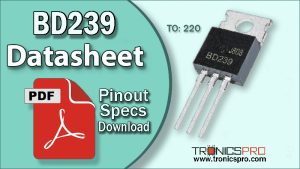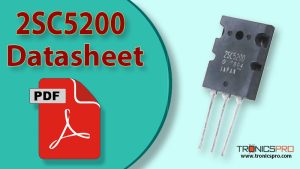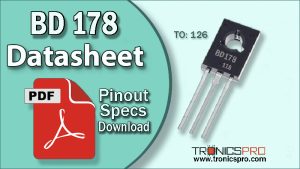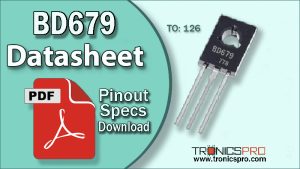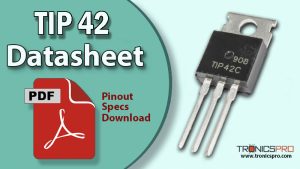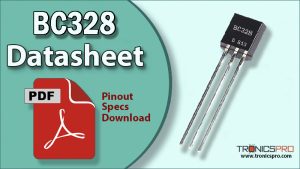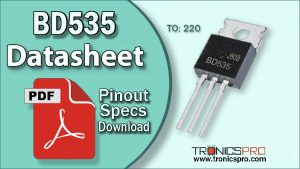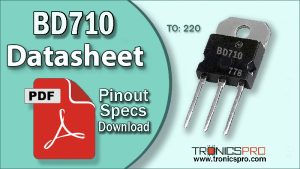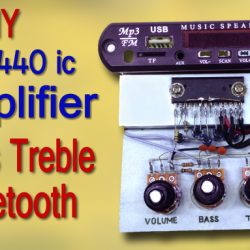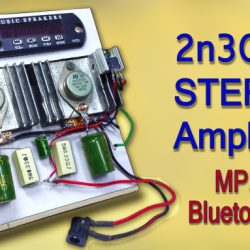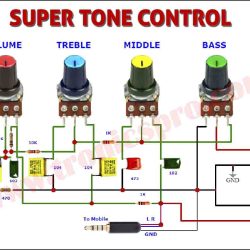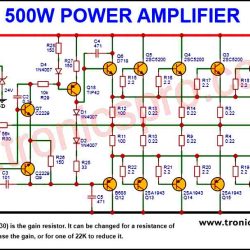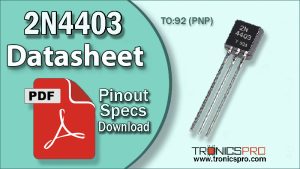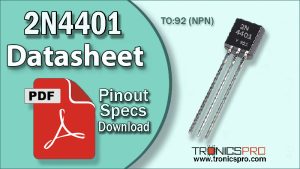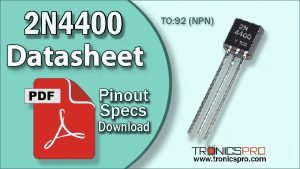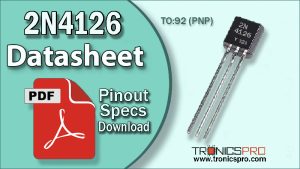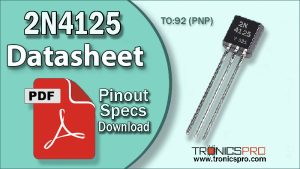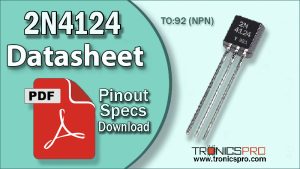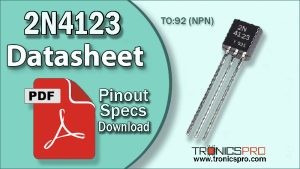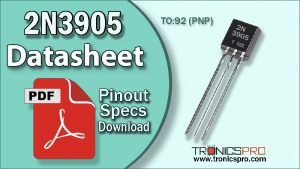The 2N4402 pinout follows the Emitter–Base–Collector (E–B–C) sequence when viewed from the flat side of the TO-92 plastic package. This 2N4402 PNP transistor is designed for low to medium current switching and signal amplification applications. With a collector–emitter voltage (Vce) of –40 V, collector–base voltage (Vcb) of –40 V, and a collector current of –600 mA, the 2N4402 transistor performs reliably in audio amplifiers, driver stages, and low-power control circuits.
It shares close electrical characteristics with the 2N4403 transistor, both being PNP small-signal transistors used in complementary and symmetrical amplifier designs.
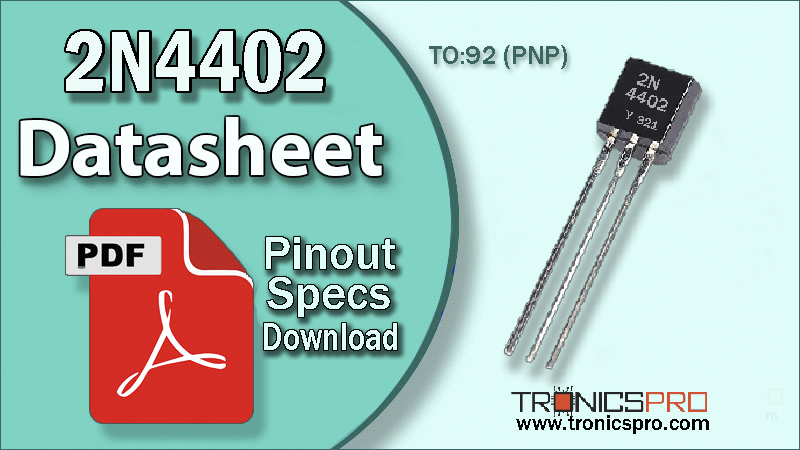
Introduction to 2N4402 PNP Transistor
The 2N4402 is a general-purpose PNP transistor built using silicon planar technology for consistent performance and stability. It can handle moderate current loads with a power dissipation of 625 mW, making it suitable for signal switching, audio preamplifiers, and voltage control circuits.
This device offers high DC gain, low leakage current, and excellent frequency response, allowing for accurate amplification and switching even at high signal frequencies. It is widely used in consumer electronics, hobby projects, and analog signal conditioning.
2N4402 PNP Transistor
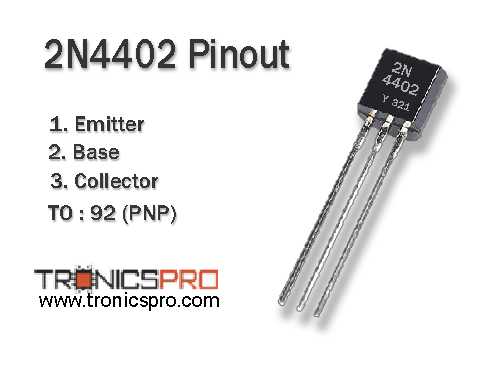
Pinout of 2N4402
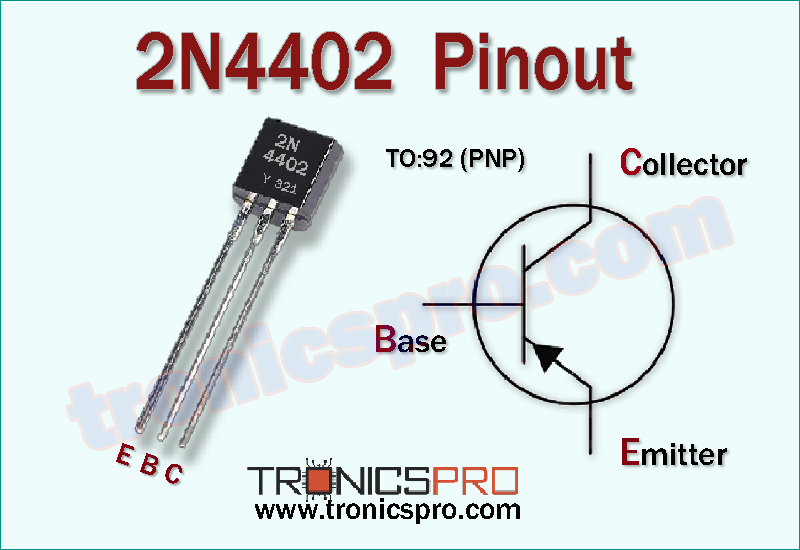
Understanding the 2N4402 Pinout Configuration
The 2N4402 pin configuration follows a clear and standard layout, which helps designers easily integrate it into their circuit designs. When looking at the transistor’s flat face, the pins are arranged as Emitter–Base–Collector (E–B–C) from left to right.
Pin Configuration of 2N4402 Pinout
| Pin# | Pin Name |
|---|---|
| 1 | Emitter |
| 2 | Base |
| 3 | Collector |
Key Features of 2N4402 Transistor
- General-purpose PNP silicon transistor
- Suitable for low to medium current switching and amplification
- Offers high gain and low leakage current
- Stable DC performance and low noise characteristics
- TO-92 package with Emitter–Base–Collector (E–B–C) layout
- Compatible with other small-signal PNP transistors
2N4402 Transistor Datasheet and Specifications
- Collector–Emitter Voltage (Vce): –40 V
- Collector–Base Voltage (Vcb): –40 V
- Emitter–Base Voltage (Veb): –5 V
- Collector Current (Ic): –600 mA
- Power Dissipation (Pc): 625 mW
- DC Current Gain (hFE): 100 – 300 (typical)
- Transition Frequency (fT): 250 MHz (typical)
- Polarity: PNP
- Package Type: TO-92
- Pin Configuration: Emitter–Base–Collector (E–B–C)
Working Principle of 2N4402 PNP Transistor
The 2N4402 transistor functions by allowing current to flow from the emitter to the collector when a small current is applied to the base terminal in reverse bias relative to an NPN type.
In the active region, it works as an amplifier, boosting weak input signals. When fully saturated, it acts as a switch, conducting maximum current through the load.
Its moderate current handling capability (600 mA) and wide bandwidth make it efficient for both low-frequency and medium-speed signal processing applications.
More Circuit Layouts

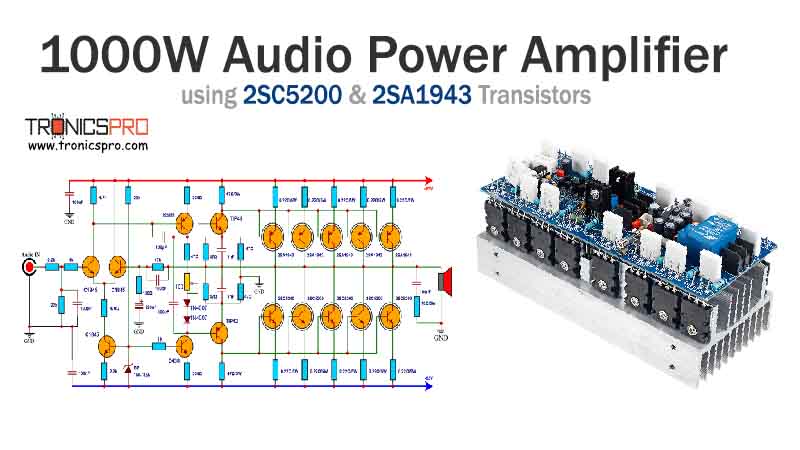
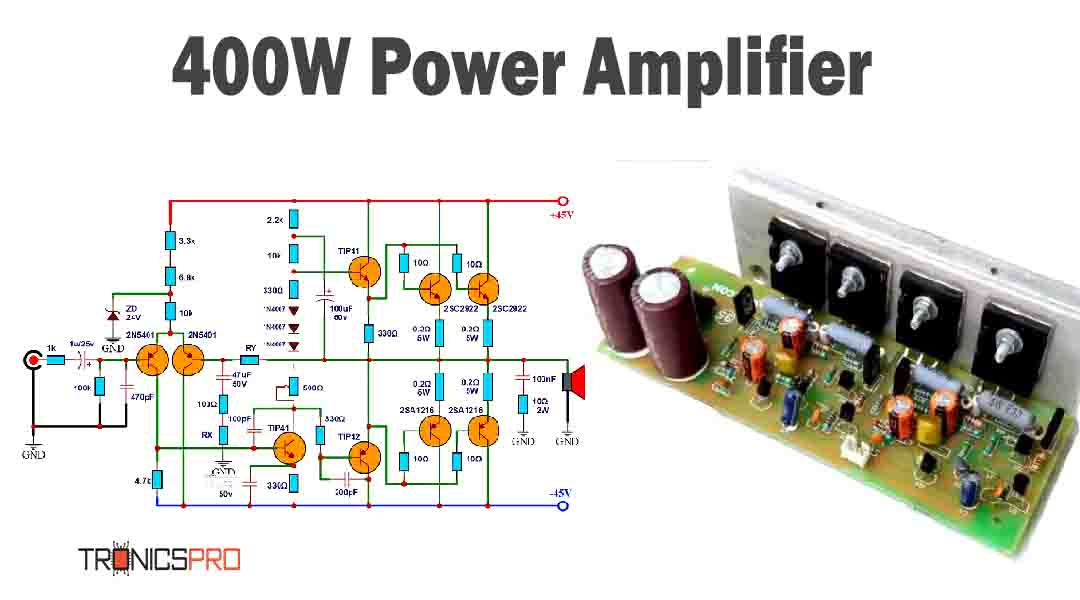
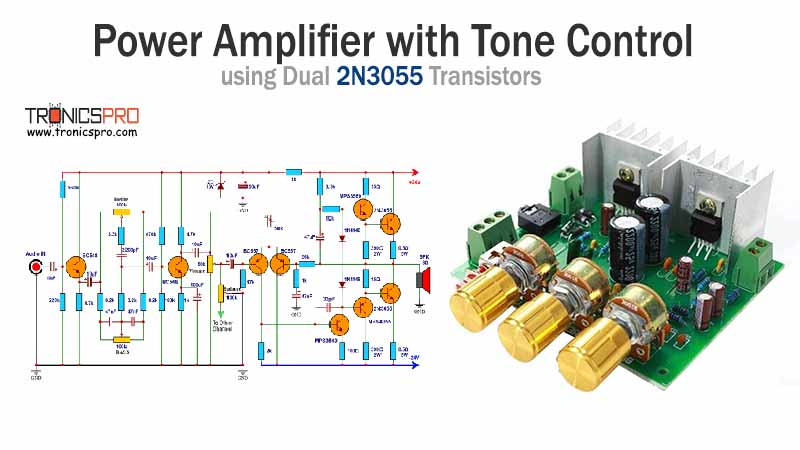
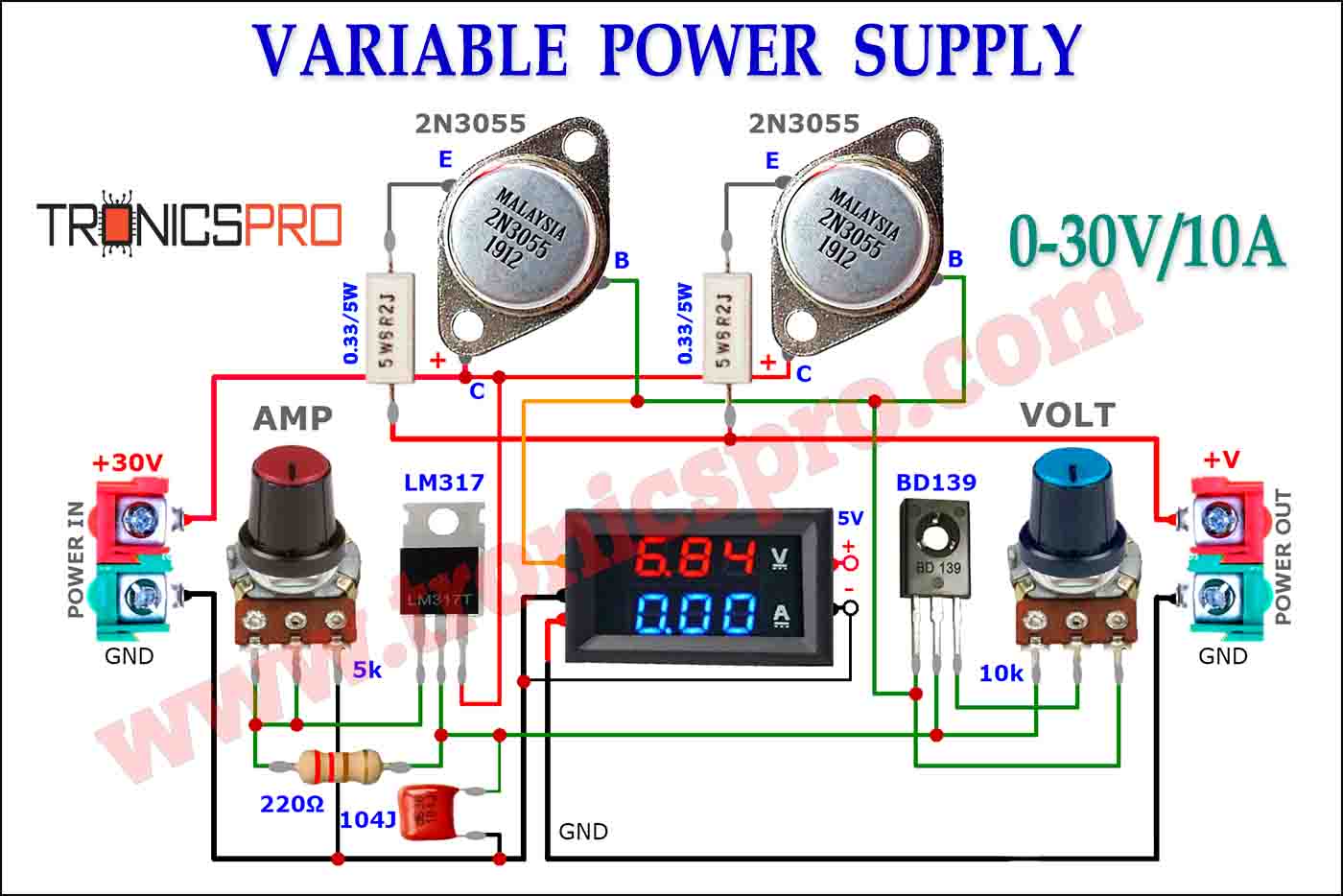
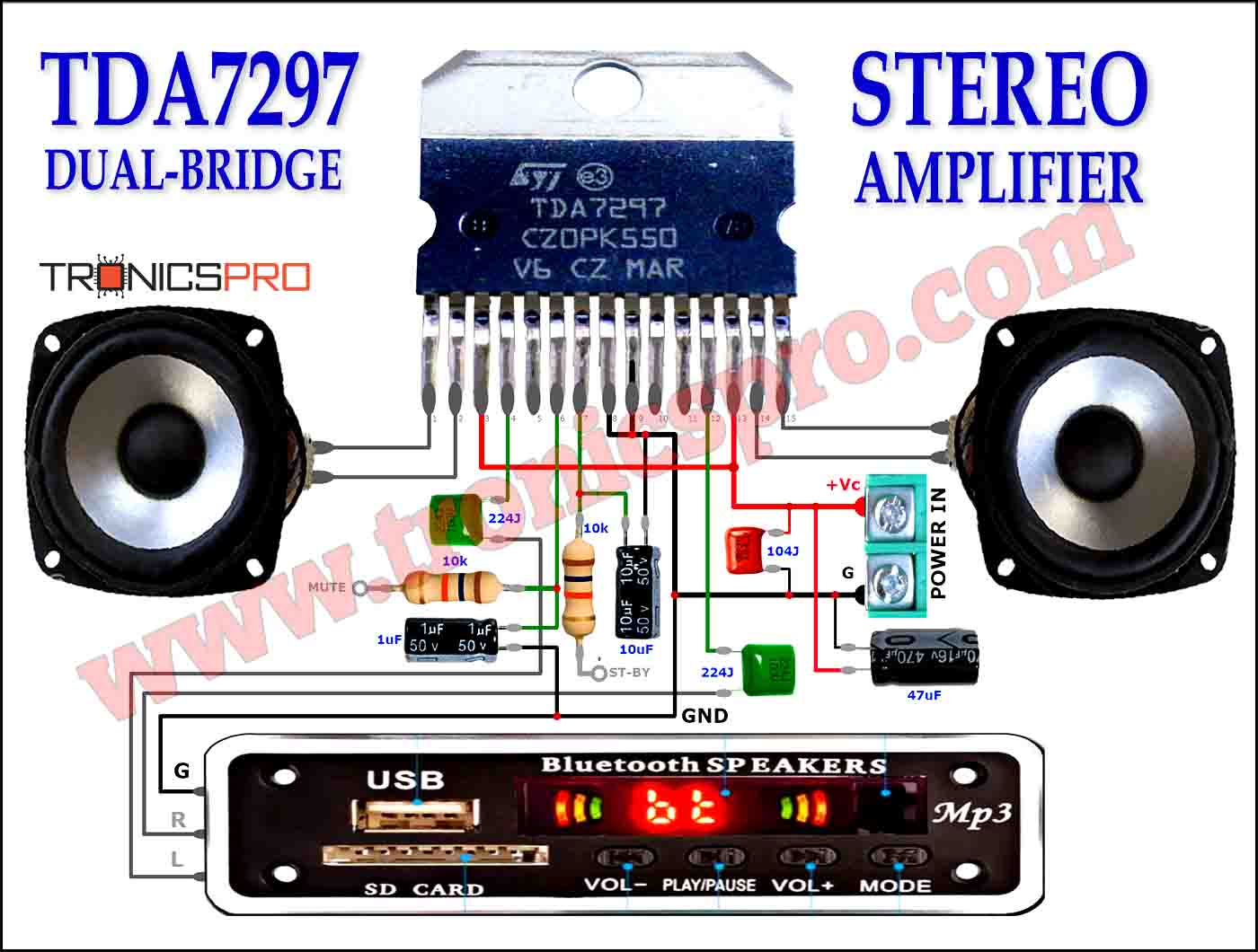
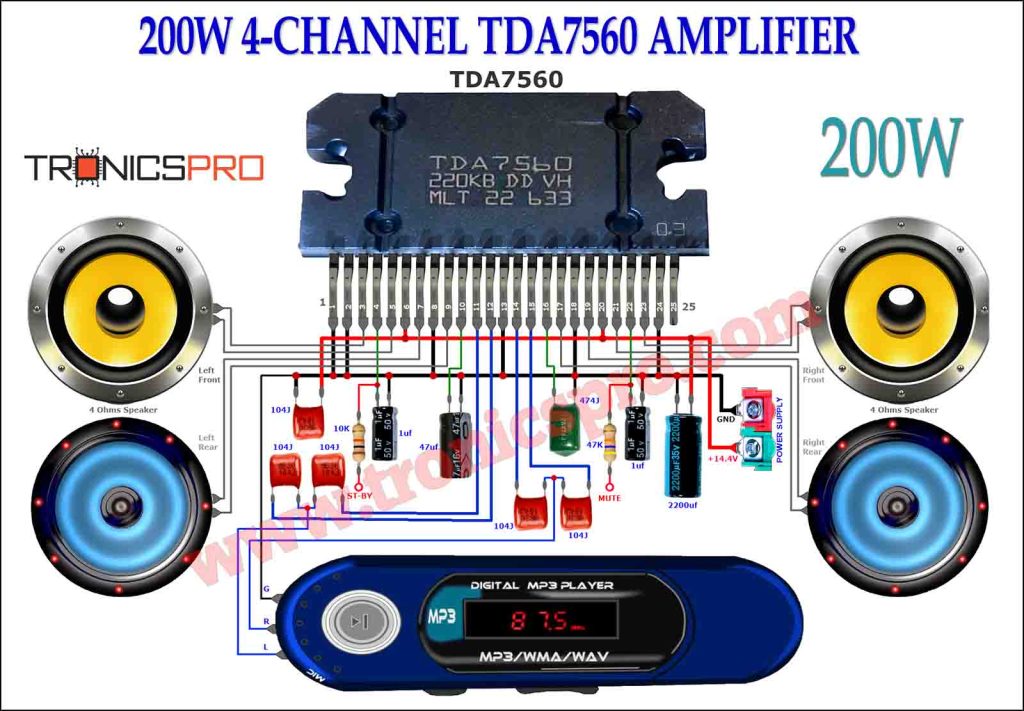
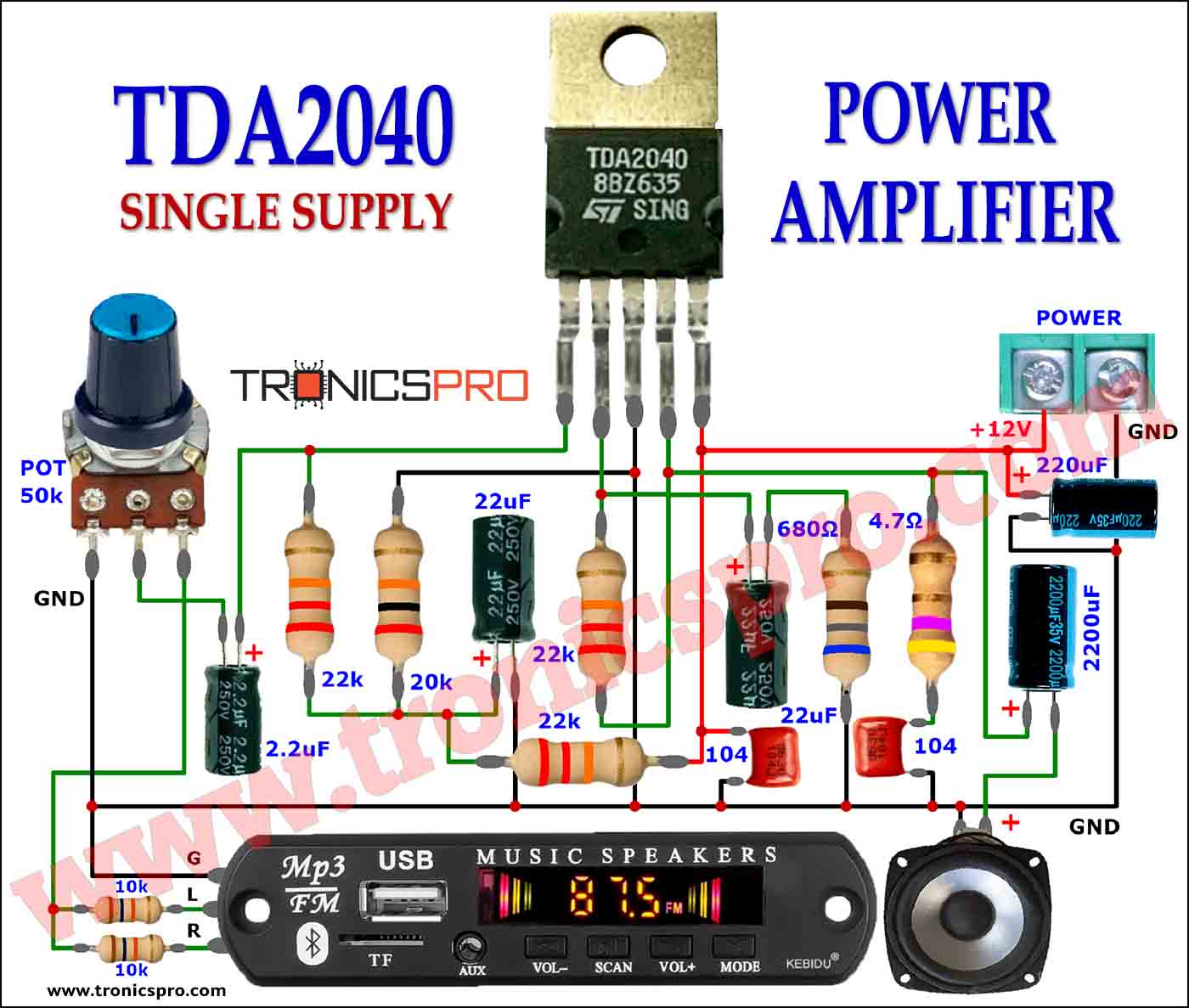
Typical Applications of 2N4402
- Audio and low-power amplifier stages
- LED and relay drivers
- Signal switching and logic interface circuits
- Complementary amplifier pairs with NPN transistors
- Voltage regulation and feedback control circuits
- Low-power analog and digital modules
Equivalent Transistors and Alternatives
- 2N4403 – Closely matched PNP transistor
- 2N2907A – General-purpose replacement
- BC558 / BC556 – Small-signal low-noise PNP alternatives
- A733 / S8550 – Suitable substitutes for low-voltage circuits
- 2SA1015 – PNP transistor for similar applications
Comparison Summary: 2N4402 vs 2N4403
Both 2N4402 and 2N4403 are PNP small-signal transistors with identical voltage and current ratings — 40 V Vce, 40 V Vcb, and 600 mA collector current.
However, they differ slightly in gain range and frequency response. The 2N4402 transistor generally offers higher transition frequency (fT) and lower noise, making it ideal for audio preamp and signal amplification applications.
On the other hand, the 2N4403 transistor provides better linear response in switching and driver circuits. Thus, while both are interchangeable in most designs, 2N4402 is typically chosen for precision amplification, and 2N4403 for signal control and low-speed switching.
Frequently Asked Questions (FAQ)
What is the maximum current of 2N4402?
The transistor supports a maximum collector current of –600 mA.
What package type is 2N4402?
It is available in a TO-92 plastic package, suitable for PCB and breadboard prototyping.
What is the 2N4402 pin configuration?
The 2N4402 pinout is Emitter–Base–Collector (E–B–C) from left to right when the flat side faces you.
Can I replace 2N4402 with 2N4403?
Yes, both are PNP small-signal transistors with nearly identical ratings.
The 2N4402 has slightly faster switching performance, while 2N4403 offers smoother response in analog designs.
What are common applications of 2N4402?
Used in audio amplifiers, signal switches, voltage regulators, and low-power analog circuits.
Conclusion
The 2N4402 PNP transistor is a robust and widely used small-signal device designed for low-voltage amplification and medium-current switching.
Its 40 V voltage capability, 625 mW power dissipation, and 600 mA current handling make it ideal for numerous audio, control, and analog circuits.
When compared to the 2N4403, it offers a slightly faster response and cleaner signal characteristics, making it an excellent choice for precision amplifier and control applications.
Datasheet & Pinout of 2N4402 NPN Transistor
Click the following Button to download the datasheet of 2N4402 Transistor :
More projects, You may like:
- Video Transmitter DIY Homemade FM Radio Transmitter
- Adjustable Power Supply DIY Battery Charger
- 12V-220V 500 Watt inverter DIY Homemade
- MPPT Solar Charge Controller DIY Homemade
- DIY LA4440 bass amplifier homemade
For more project and circuit diagrams, you can go through the Schematics in the main menu where you can find many interesting projects and circuit diagrams like audio amplifier circuits, voltage booster circuit, battery charger circuit and timer circuits etc., which are all beginner circuit projects. Feel free to check them out!

Thank you for visiting the article.


